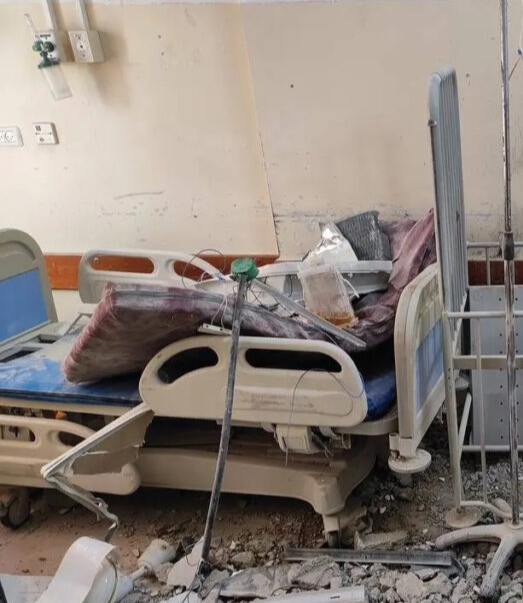
Gaza City, September 9 (RHC)-- Two hospitals in northern Gaza have warned that they will be out of service due to shortages of fuel and medical supplies caused by Israel’s genocidal war on the besieged Palestinian territory.
The Indonesian and Kamal Adwan hospitals, both situated in Beit Lahia, announced on Monday that they will stop working as the occupying regime keeps up its brutal aggression and blockade on Gaza.
In an interview with Al Jazeera, director of Kamal Adwan Hospital, Hussam Abu Safia, warned that operations could stop within 48 hours because of a lack of fuel and critical medical items. He also noted that fuel shortages in the intensive care unit could lead to the deaths of dozens of children.
Similarly, director of the Indonesian hospital, Marwan Sultan, said that the intensive care unit has reached its maximum capacity and is filled with critical cases, in addition to the presence of 10 patients who depend on ventilators.
“The operating rooms are running non-stop around the clock,” he added. “If Israel continues to block fuel deliveries, medical services could come to a complete halt, condemning these patients to death.”
Israel unleashed the Gaza onslaught on October 7, 2023, after the Palestinian Hamas resistance group carried out a historic operation against the usurping entity in retaliation for its intensified atrocities against the Palestinian people.
So far, the Tel Aviv regime has so far killed at least 40,972 Palestinians, mostly women and children, and injured 94,761 others. Israel has targeted hospitals in its offensive, damaging or destroying Gaza’s most important medical facilities in a war crime and a blatant violation of international law.
The regime’s bombing campaign in Gaza has decimated the territory’s healthcare system, with 31 of 36 hospitals damaged or destroyed, according to the World Health Organization (WHO).

